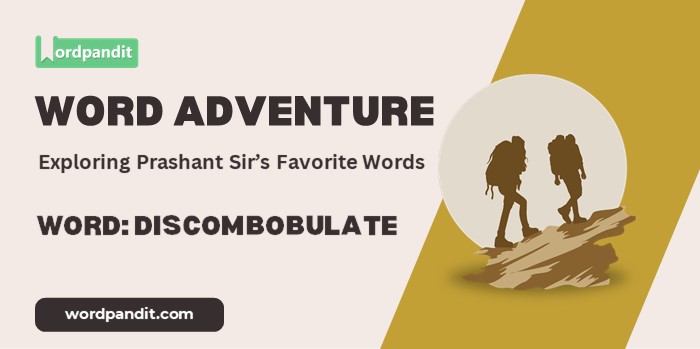Word Adventure: Discombobulate
The Headline
"Discombobulate: When Your Brain Does the Hokey Pokey"
The Scoop
In the colorful playground of the English language, some words stand out for their sheer phonetic fun. 'Discombobulate' is one such lexical gem – a term that sounds almost as confused as the state it describes. Let's embark on a slightly dizzy journey to understand this word that puts the 'fun' in cognitive dysfunction.
Let's Break It Down
The Plot Thickens
'Discombobulate' is a delightful example of what linguists call a "facetious formation" – a word created more for its sound than its sense. It first appeared in American English in the early 19th century, likely as a playful alteration of words like 'discompose' or 'discomfort'.
What makes 'discombobulate' particularly interesting is its staying power. Despite its whimsical origins, it has become a legitimate part of the English lexicon, appearing in respected dictionaries and being used in both casual and formal contexts.
The word's popularity might be attributed to its onomatopoeic quality – it somehow sounds like the mental scrambling it describes. It's a reminder that sometimes in language, sound can be just as important as meaning in a word's success.
Word in the Wild
The Twist
Here's a discombobulating fact about 'discombobulate': despite its very English sound, it's one of the few words that English hasn't borrowed from another language but has instead invented wholesale. In a language known for its magpie-like tendency to adopt words from other tongues, 'discombobulate' stands as a testament to English's capacity for creative wordplay. It's as if the language itself got a bit discombobulated and came up with this gem!
Make It Stick
Discombobulate: When your thoughts decide to play musical chairs!
Your Turn
Think about a time when you felt thoroughly discombobulated. What caused it? How did you regain your composure? Share your discombobulating experiences in the comments below. Let's explore how these moments of confusion can lead to humorous situations or unexpected insights!
Down the Rabbit Hole
- Curious about other playfully formed words? Look into terms like 'kerfuffle', 'flibbertigibbet', or 'skedaddle'.
- Interested in the psychology of confusion? Explore studies on cognitive dissonance or the tip-of-the-tongue phenomenon.
- Want to dive into the world of invented words? Research 'neologisms' and how they make their way into mainstream language.
The Last Word
As we conclude our slightly dizzying exploration of 'discombobulate', I hope you've gained a new appreciation for this whimsical word and the state of confusion it so aptly describes. It serves as a reminder that language can be both meaningful and playful, serious and silly. The next time you find yourself in a state of mental disarray, remember – you're not just confused, you're discombobulated! Until our next word adventure, this is Prashant from Wordpandit, encouraging you to embrace those discombobulating moments that add a dash of chaos and creativity to our lives!

